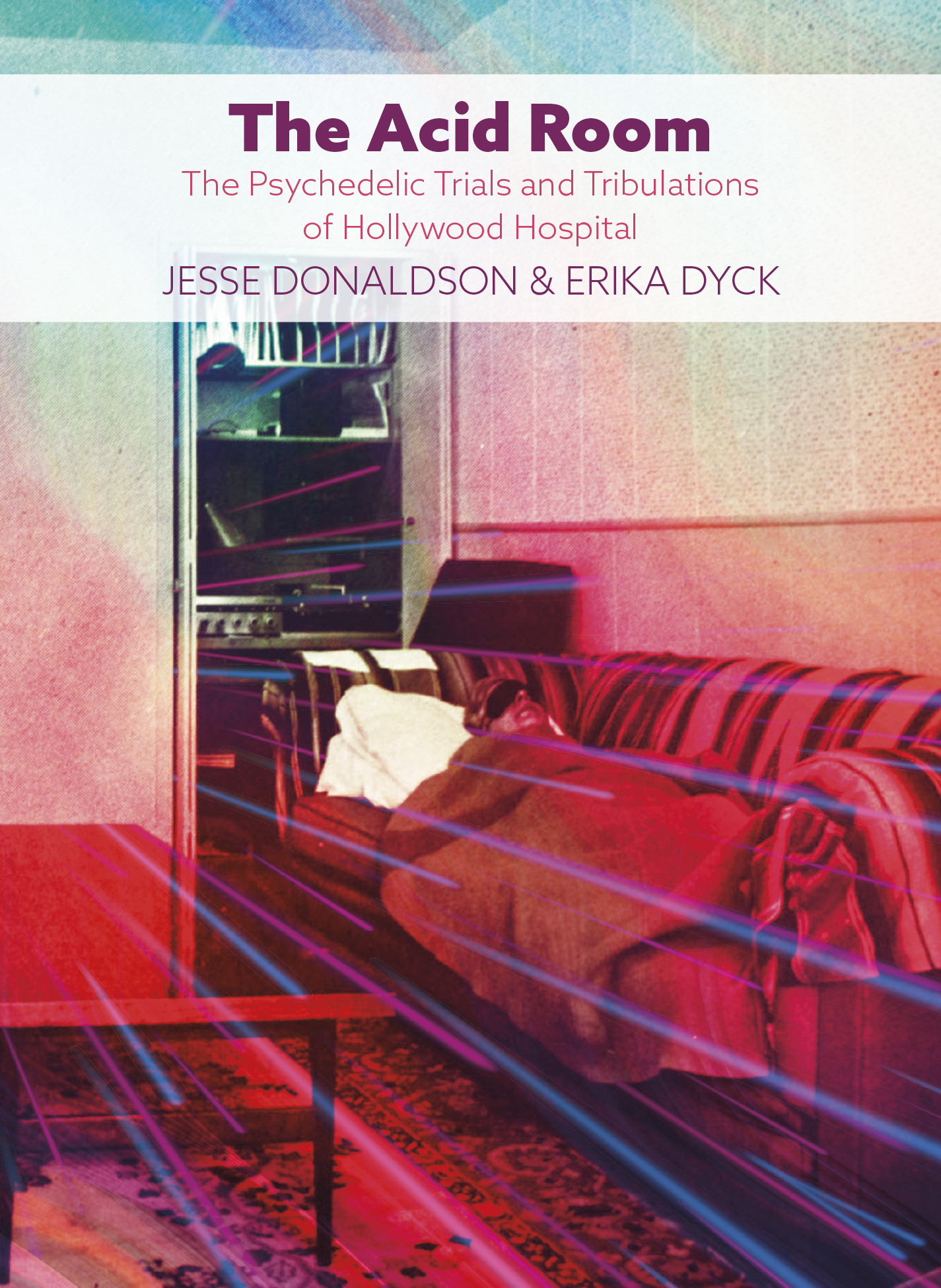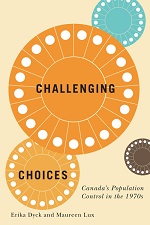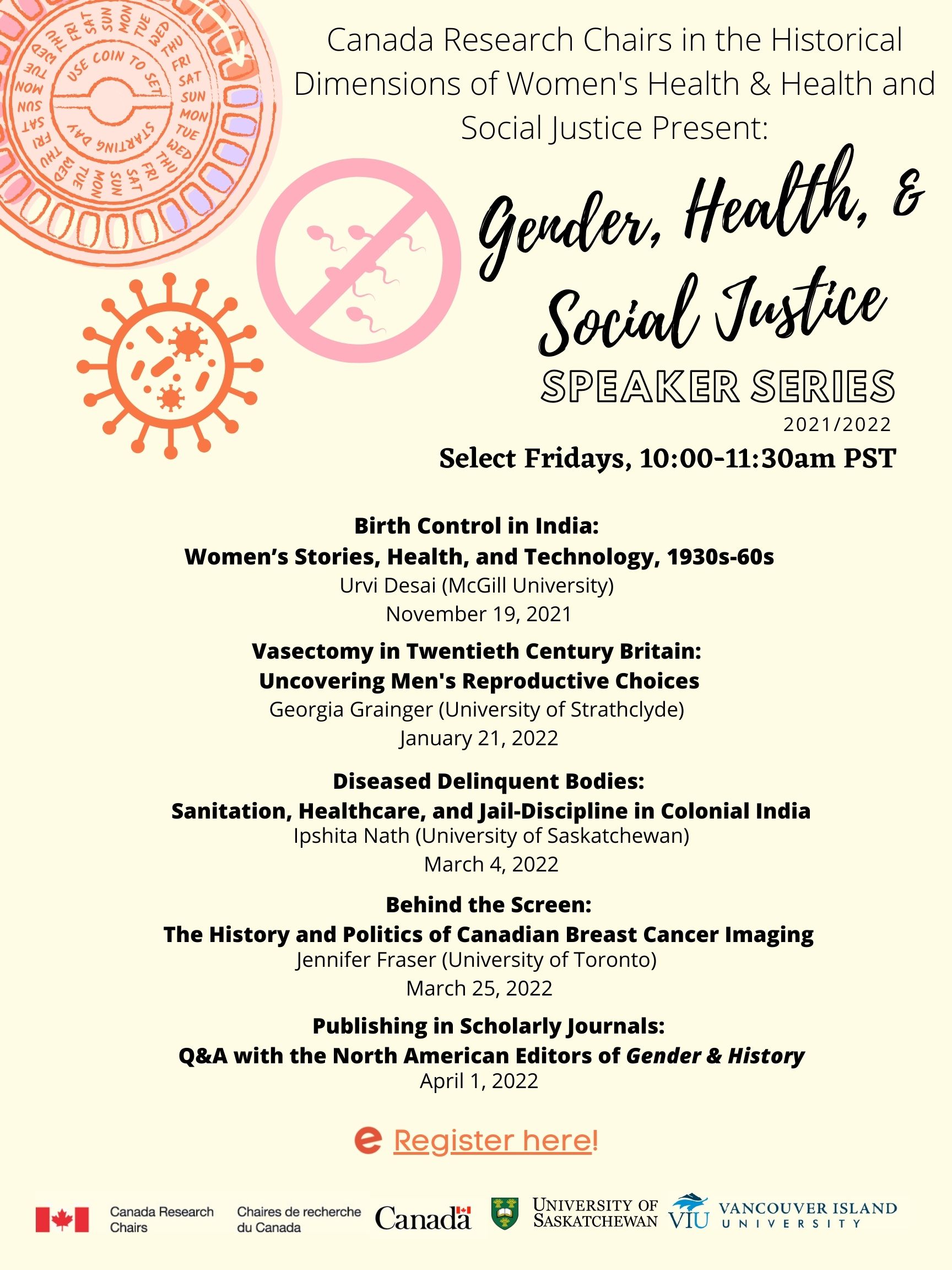Books
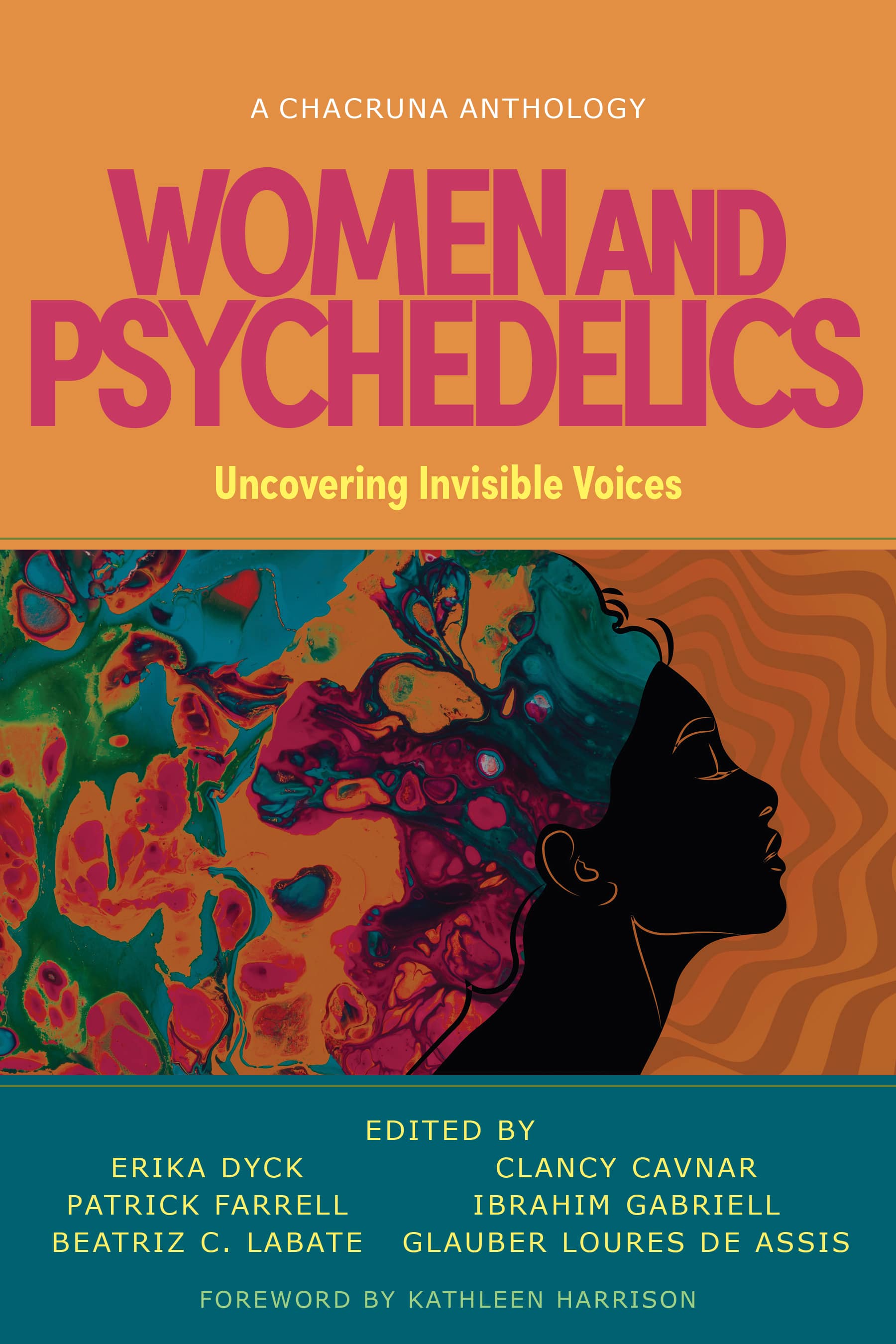 |
Women and Psychedelics: Uncovering Lost Voices Edited by Erika Dyck, Patrick Farrell, Beatriz Caiuby Labate, Clancy Cavnar, Ibrahim Gabriell, and Glauber Loures de Assis Foreward by Kathleen Harrison
This collection of short essays examines the place of women in the history of psychedelics. While some of the subjects are pioneers in their own right, the authors in this collection go beyond merely adding women to the past in psychedelic history, exploring some of the significant ways that women have contributed to psychedelic knowledge. Blending historical and anthropological approaches with a series of captivating interviews, this collection taps into women’s networks around the world throughout the 20th century. It reveals some of the sophisticated and creative ways women have influenced our understanding of psychedelics and how they will continue to protect these stories as we face our psychedelic future. Our collection intentionally moves beyond an American set of stories, teasing out networks in Latin America. This collection brings together authors from the Chacruna Institute and Chacruna Latinamérica to engage readers in conversations that move across time and place throughout the Americas. It is the first of its kind to balance non-English contributions through translation of stories exploring different cultural contexts outside the United States, where women have contributed to this enduring history. Read more about the collection, the authors, and pre-order here. |
 |
The History of Psychedelics (Audiobook) By Erika Dyck Mescaline, LSD, and psilocybin mushrooms. There’s been a lot of discussion in the medical world lately about the potential benefits of these and other drugs for certain medical conditions, such as anxiety and depression. As we consider the place of psychedelics in the future, we can draw insight and guidance from the history of how psychedelics have been described, sought after, applied, and prohibited over the centuries. Erika Dyck, professor of history at the University of Saskatchewan, introduces you to the world of hallucinogens, from the sacred rituals of Indigenous cultures to their role in the social upheavals of the 1960s to the current interest in their potential therapeutic applications. Over six mind-expanding lessons, she’ll cover sacred plants, ayahuasca, mescaline, LSD, mushrooms, and others, looking at the origins, uses, potential, and science behind each. You will see how psychedelics have broadened horizons and inspired new insights, often in the face of deep-seated prejudice and fear. An Audible Original and part of The Great Courses collection. Available for listening here. |
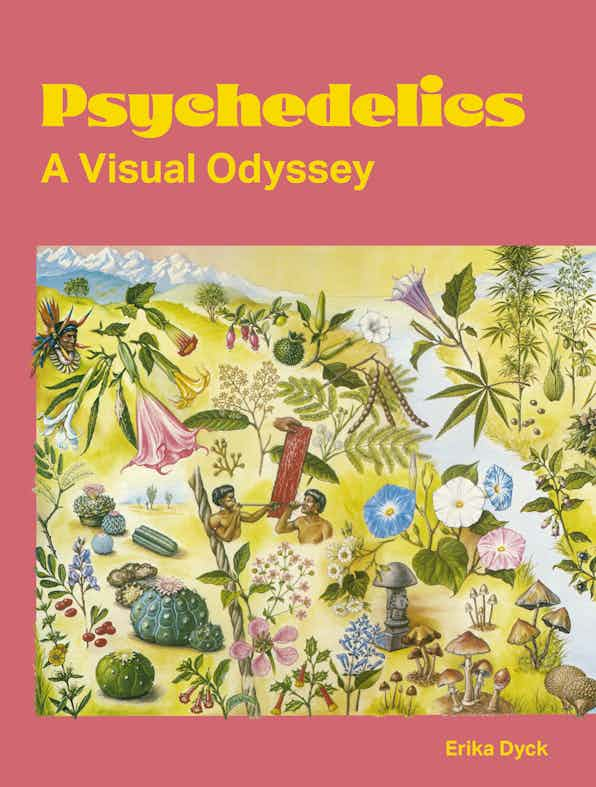 |
Psychedelics: A Visual Odyssey By: Erika Dyck A gorgeously illustrated journey through psychedelics and their global history that explores how psychedelic visions have inspired and given meaning to humans throughout time.
|
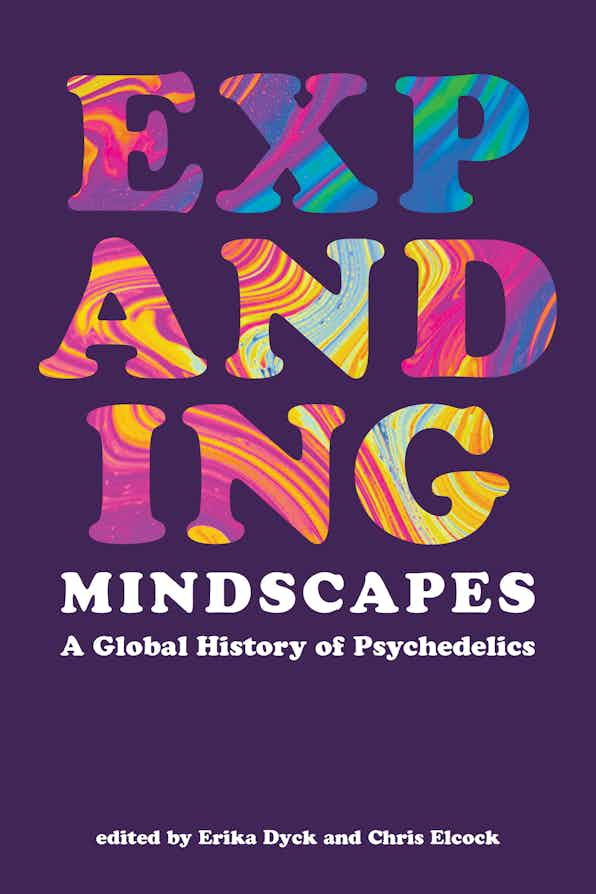 |
Expanding Mindscapes: A Global History of Psychedelics By Erika Dyck and Chris Elcock The first collection of its kind to explore the diverse and global history of psychedelics as they appealed to several generations of researchers and thinkers. Expanding Mindscapes offers a fascinatingly fluid and diverse history of psychedelics that stretches around the globe. While much of the literature to date has focused on the history of these drugs in the United States and Canada, editors Erika Dyck and Chris Elcock deliberately move away from these places in this collection to reveal a longer and more global history of psychedelics, which chronicles their discovery, use, and cultural impact in the twentieth century. The authors in this collection explore everything from LSD psychotherapy in communist Czechoslovakia to the first applications of LSD-25 in South America to the intersection of modernism and ayahuasca in China. Along the way, they also consider how psychedelic experiments generated their own cultural expressions, where the specter of the United States may have loomed large and where colonial empires exerted influence on the local reception of psychedelics in botanical and pharmaceutical pursuits. Breaking new ground by adopting perspectives that are currently lacking in the historiography of psychedelics, this collection adds to the burgeoning field by offering important discussions on underexplored topics such as gender, agriculture, parapsychology, anarchism, and technological innovations.
|
 |
Women & Psychedelics: Uncovering Invisible Voices [Book in Spanish] [English version forthcoming in 2023] Editors: Erika Dyck, Patrick Farrell, Beatriz Caiuby Labate, Clancy Cavnar, Ibrahim Gabriell and Glauber Loures de Assis This collection of short essays examines the place of women in the history of psychedelics. While some of the subjects are clearly pioneers in their own right, the authors in this collection go beyond merely adding women to the past to explore some of the significant ways that women have contributed to psychedelic knowledge. Blending historical and anthropological approaches and a series of interviews, this collection taps into women’s networks around the world and throughout the 20th century to reveal some of the sophisticated and creative ways that women have influenced our understanding of psychedelics, and how they continue to protect these stories as we face a psychedelic future. Our collection intentionally moves beyond an American set of stories, teasing out networks in Latin America. This collection brings together authors from the Chacruna Institute and Chacruna Latinamérica to engage readers in conversations that move across time and place throughout the Americas. Our collection is the first of its kind in balancing non-English contributions exploring contexts outside the United States. Translated texts reveal different cultural contexts in which women have contributed to this enduring history. Read more about the collection in the Press Release, here.
|
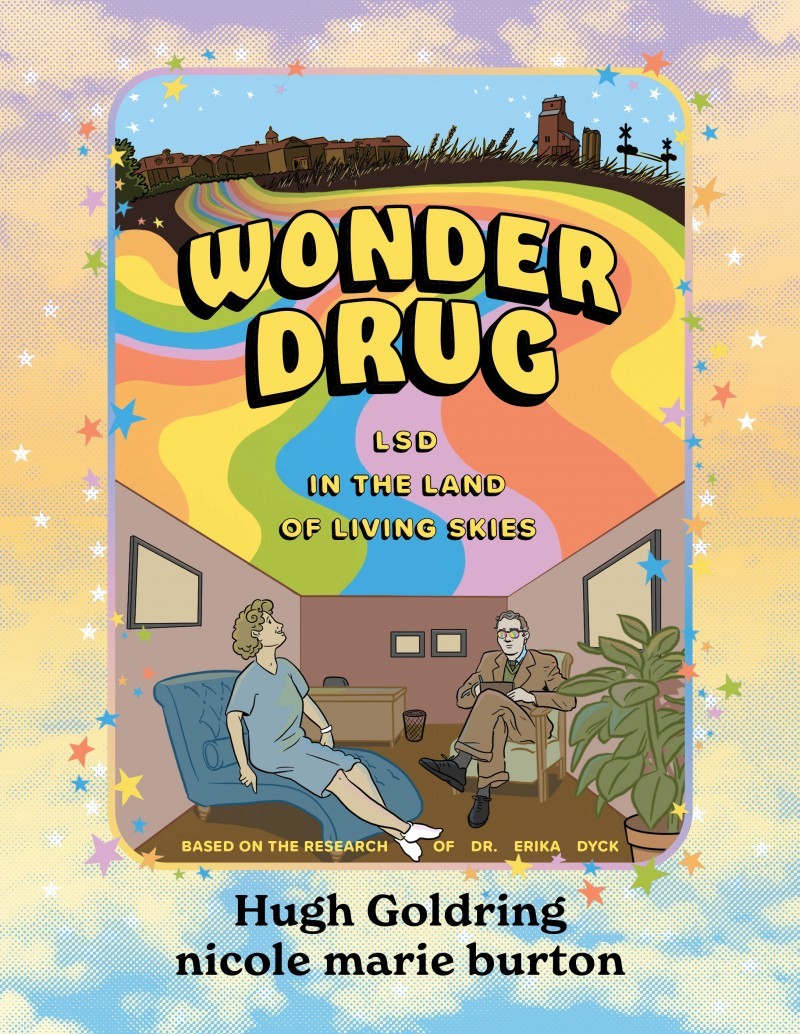 |
Wonder Drug: LSD in the Land of Living Skies By Hugh D.A. Goldring, Illustrated by nicole marie burton, Afterword by Dr. Erika Dyck Illustrated in kaleidoscopic full colour, Wonder Drug is the graphic history of a controversial and little-known medical research project carried out in the Canadian prairies—one that championed LSD as a way to model schizophrenia and cure ailments from alcoholism to depression. Spanning the decades from the 1950s to present day, this captivating story follows Anglo-Canadian psychiatrist Dr. Humphry Osmond down the rabbit hole of psychedelic research, conducted both in the lab and in his living room. Lurching from dazzling imagery to fanged delusions, and studded with a cast of radical personalities such as Aldous Huxley, Allen Ginsberg, Ken Kesey, and Kay Parley, Wonder Drug is a trip like no other. Read Paul Buhle's review of Wonder Drug on Comics Grinder, "Sparling Color in Radical Comics." Watch the launch of Wonder Drug hosted by BTL Books here! And read more about Wonder Drug on Radio-Canada, "Expériences psychédéliques en Saskatchewan"! Read what CBC says about the "graphic novel... bringing Saskatchewan's history of LSD research alive." And listen to CBC Listen: Saskatchewan Weekend with Shauna Powers, "Wonder Drug: LSD in the Land of Living Skies." Read more in Saskatoon's The StarPhoenix, "I hope it . . . stimulates conversations amongst readers or consumers of graphic novels that wouldn't otherwise necessarily reach for a history book..." - Dyck |
|
|
The Acid Room Jesse Donaldson and Erika Dyck From the street, New Westminster's Hollywood Hospital didn't look like much. Just a rambling white mansion, mostly obscured behind the holly trees from which it took its name. But, between 1957 and 1968, it served as a mecca for alcoholics, anxiety patients, and unhappy couples, its unorthodox methods boasting a success rate of 50-80%, and attracting scores of celebrity patients, including Andy Williams, Cary Grant, and Ethel Kennedy. Those same methods would eventually bring about the facility's downfall, as well as the condemnation of physicians, the government, and the police. Because, for the better part of a decade, Hollywood Hospital was the site of more than 6000 supervised LSD trips. Under the care of psychiatrist J. Ross MacLean and researcher/ex-spy Al "Captain Trips" Hubbard, it was the only medical facility in BC (and one of a handful across the country) venturing into the brave new world of psychedelic psychiatry - from a specialized inner sanctum known as the Acid Room. Despite MacLean and Hubbard's success, Hollywood Hospital and its contemporaries had their work cut short by changing attitudes and prohibitionist scaremongering, and it languished for more than 50 years. Today, with Canada once again returning to the spotlight as a pioneer in psychedelic medicine, The Acid Room is a thoughtful exploration of those early acid tests - the facility where it began, the patients who drank the Kool-Aid, and the colourful characters who first opened their doors of perception. Read Clay Holden's review of The Acid Room, "Ordinary People, Backwards Clocks, and Psychedelics" (posted May 24, 2022) on White Wall Review Read more about this work in the Vancouver Sun, "As psychedelics return so does the story of New Westminster's Hollywood Hospital" And listen to CBC Listen: On The Coast with Gloria Macarenko: "Vancouver’s history of psychedelics in psychotherapy" |
|
|
Challenging Choices (2020) Erika Dyck & Maureen K. Lux In Challenging Choices Erika Dyck and Maureen Lux argue that reproductive politics in 1970s Canada were shaped by competing ideologies on global population control, poverty, personal autonomy, race, and gender. For some Canadians the 1970s did not bring about an era of reproductive liberty but instead reinforced traditional power dynamics and paternalistic structures of authority. Dyck and Lux present case studies of four groups of Canadians who were routinely excluded from progressive, reformist discourse: Indigenous women and their communities, those with intellectual and physical disabilities, teenage girls, and men. In different ways, each faced new levels of government regulation, scrutiny, or state intervention as they negotiated their reproductive health, rights, and responsibilities in the so-called era of sexual liberation. Listen to the authors speak about the book with New Books Network: https://newbooksnetwork.com/challenging-choices |
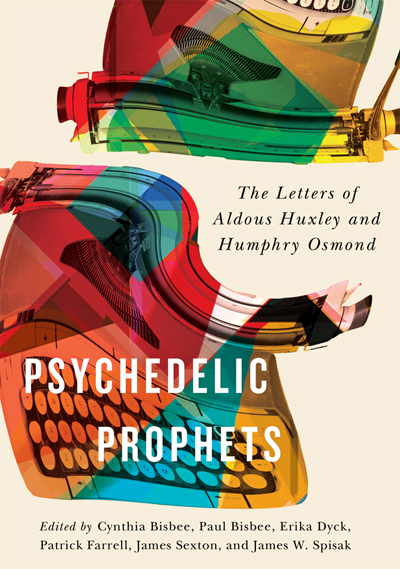 |
Psychedelic Prophets (2018)Cynthia & Paul Bisbee, Erika Dyck, Patrick Farrell, James Sexton, and Jim Spisak This critical edition provides the complete correspondence between author Aldous Huxley (1894-1963) and British-trained psychiatrist Humphry Osmond (1917-2004), chronicling an exchange between two brilliant thinkers who explored such subjects as psychedelics, the visionary experience, the nature of mind, human potentialities, schizophrenia, death and dying, Indigenous rituals and consciousness, socialism, capitalism, totalitarianism, power and authority, and human evolution. The letters bear witness to the development of mind-altering drugs aimed at discovering the mechanisms of mental illness and eventually its treatment. |
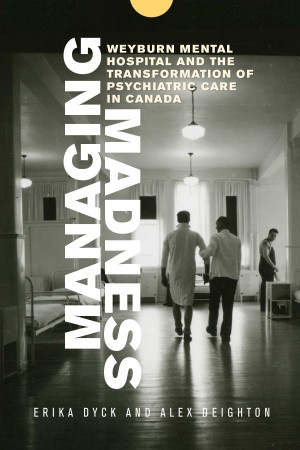 |
Managing Madness (2017) Erika Dyck & Alex DeightonThe Saskatchewan Mental Hospital at Weyburn has played a significant role in the history of psychiatric services, mental health research, and community care in Canada. Its history provides a window to the changing nature of mental health services over the twentieth century. Listen to Greg Marchildon talk with Erika Dyck about the book in the podcast epidose "The History of Psychiatric Care and Mental Hospitals in Canada." Part of the Witness to Yesterday series. Published by The Champlain Society. April 18, 2018. |
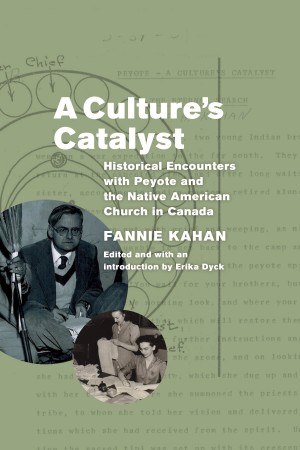 |
A Culture's Catalyst (2016) A Culture’s Catalyst revives a historical debate. Revisiting it now encourages us to reconsider how peyote has been understood and how its appearance in the 1950s tested Native-newcomer relations and the Canadian government’s attitudes toward Indigenous religious and cultural practices. Listen to Greg Marchildon talk with Erika Dyck about the book in the podcast epidose "Native American Church and the religious use of peyote in Canada." Part of the Witness to Yesterday series. Published by The Champlain Society. March 22, 2018. |
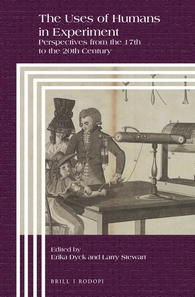 |
The Uses of Humans in Experiment (2016) Ethics in human experimentation has a long history and The Uses of Humans in Experiment draws on examples from the early modern period to illustrate how humans have been both subjects and instruments over the past four centuries. |
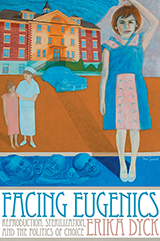 |
|
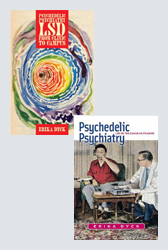 |
|
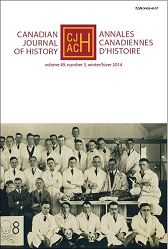 |
|
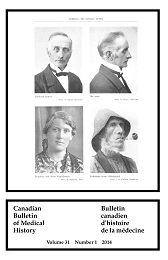 |
|
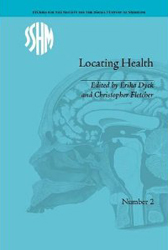 |
Locating Health: Explorations of Healing and Place(2011) Dyck, E. and Chris Fletcher (eds), Locating Health: Explorations of Healing and Place (London: Pickering and Chatto Pubs Ltd) For more information on this text click here |
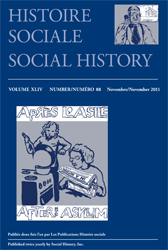 |
Dismantling the Asylum and Charting New Pathways into the Community: Mental Health Care in 20th century Canada(2011) Dyck, E. “Dismantling the Asylum and Charting New Pathways into the Community: Mental Health Care in 20th century Canada,” (introduction) Histoire Sociale/Social History (7,000 words) 88(2): 181-196 |
Peer Reviewed Articles and Book Chapters
Erika has written nearly 100 peer-reviewed journal articles and book chapters. You can find many of them here: https://scholar.google.com/citations?user=PTPSDakAAAAJ&hl=en&oi=ao.
Websites and Online Resources
Explore the outputs of Café Scientifique dialogue on Health Equity and Psychedelics organized by MAPS Canada and funded by the CIHR: "Café Scientifique on Health Equity and Psychedelics" (March 10, 2024).
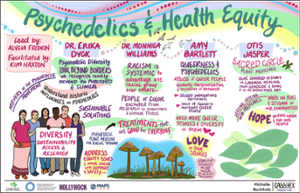
Listen to this year’s MacLennan Lecture, at The University of King's College in Halifax, N.S.: "A Psychedelic Resurgence: Lessons from the Past," delivered by Dr. Erika Dyck, Canada Research Chair in the History of Medicine, USask. (Nov 17, 2022)
Watch the webinar "Women Lead the Way - Psychedelic Success Stories" Meet the dynamic women leading the charge to make psychedelics understood and accessible across Canada. Hear about how women are making a difference and be inspired! (Oct 27, 2022) Learn more about similar webinars here!
2021/2022 CRC Speaker Series - Gender, Health, and Social Justice. Register here!
Presentation recordings available:
Birth Control in India: Women's Stories, Health, and Technology, 1930s-60s (Urvi Desai, Nov. 19, 2021)
Vasectomy in 20th-Century Britain: Uncovering Men's Reproductive Choices (Georgia Grainger, Jan 21, 2022)
The Best Books on the History of Psychedelics
Hosted by shepherd.com
Legacies of Eugenics in Canada
Online Symposium hosted on June 15th, 2021.
Interactive symposium that explored the history of reproductive control, social justice, Indigenous sterilizations, and the legacy of eugenics in Canada.
Panel and presentation recordings available:
Opening Remarks
Panel 1: Landscapes of Eugenics and Disability in Canada
Panel 2: Eugenics, Experiments and Canadian Indigenous History
Panel 3: Eugenics, Reproductive Justice, and Legacies of Birth Control
Exhibiting Eugenics Legacies
Chacruna Institute for Psychedelic Plant Medicines
Associate Director of Chacruna in Canada
Editor of the "Women in the History of Psychedlic Plant Medicines" Series
COVID-19 Community Archive
In partnership with Jim Clifford (History, University of Saskatchewan), Craig Harkema (Digital Research Centre, University of Saskatchewan), and Tim Hutchinson (University of Saskatchewan Archives)
Launched April 2020.
Madness Canada/ folie Canada
Co-principal investigator (CIHR)
PIs: Megan Davies and Erika Dyck
Aprés l’Asile/After the Asylum
Co-principal investigator and author (CIHR)
PIs: Megan Davies and Erika Dyck
Hosted on Madness Canada/ folie Canada
The Eugenics Archives
Co-Investigator (SSHRC)
PI: Rob Wilson
Team lead on archival content; author and reviewer of content throughout the site, especially in Around-The-World exhibit, the players module, the database, and encyclopedia.
Interviews and Media Coverage
"Socialism and Psychedelics on the Canadian Prairies." History on Drugs Podcast (documentary, podcast), April 23, 2025.
"Episode 9: The World of Psychedelics, with Erika Dyck." History on Drugs Podcast (interview, podcast), April 14, 2025.
"Flashback: Le portrait psychédélique d'un disparu." Radio Canada Ohdio (interview, podcast), October 29, 2024.
"Women and Psychedelics: History's Untold Stories." Pschedelics Today (interview, podcast), June 28, 2024.
"Season 5 Episode 28: Jesse Donaldson and Erika Dyck on harm reduction and Pink Floyd." Writing the Coast (interview, podcast), February 10, 2024.
"Parental Rights Legislation, Psychedelic Therapy, and Talking to Kids about their Money." (interview, radio), Mornings with Sue & Andy (Reece Schafer presenter), QR Calgary, February 2, 2024.
"#21 Erika Dyck, PhD." Beyond the Teacher (interview, podcast), January 15, 2024.
"Erika Dyck: History of LSD, propaganda, moral panics, Osmond and Huxley, Native American Church." Curious on Earth (interview, podcast), January 20, 2024.
"Erika Dyck: History of LSD, propaganda, moral panics, Osmond and Huxley, Native American Church." Curious on Earth (interview, YouTube), January 20, 2024.
"Psychedelics and the Future of Religion: Expanding Mindscapes with Erika Dyck and Christian Elcock." Harvard Divinity School Centre for the Study of World Religions (interview), December 7, 2023.
"Découverte: Au Coeur d'une Thérapie Psychédélique." Radio Canada Television (interview), November 12, 2023.
"Découverte: Renaissance Psychédélique." Radio Canada Television (interview), November 12, 2023.
"The Search for New Psychedelics." Scientific American with Rachel Nuwer (interview), November 6, 2023.
"Rites of Passage, Psychedelic History, and Rediscovering Our Hearts." Psychedelics Today (interview, podcast), November 3, 2023.
"Luminous: Can Psychedelics be Decolonized?" Luminous (interview, podcast), October 21, 2023.
"Psychedelics such as magic mushrooms are having a moment. Can science keep up?" Global News with Alyssa Julie (interview), June 25, 2023.
"The Secret History of Psychedelics" Reason with Nick Gillespie and Zach Weissmueller (interview), September 13, 2023.
"Can magic mushrooms treat depression? How a Canadian microdosing trial aims to find out" Global News (interview), June 26, 2023.
"Un centre intégrera perspectives autochtones et drogues psychédéliques dans ses recherches" CBC- Radio Canada - ICI Colombie-Britannique (interview), March 28, 2023.
"Sask. pandemic history project launches 'Remember Lives, Not Numbers' memorial" Moose Jaw Today with Gordon Edgar (interview), March 16, 2023.
"Historians hope to preserve COVID-19 pandemic stories as Sask. death toll creeps toward 2,000" CBC News with Alexander Quon (interview), March 13, 2023.
Out of the Blank #1271 -Erika Dyck (interview, podcast), Nov 20, 2022.
"Who coined the term "psychedelic"? 5 questions for historian Erika Dyck" The Microdose with jane c. hu (interview, online), October 24, 2022.
"It's All One Big *US*" Mind, Body, Health & Politics with Host Dr. Richard Louis Miller (interview, podcast), July 26, 2022
"USASK projecy creating COVID-19 archive to share, learn from critical experience" USASK News. June 16, 2022
Saskatchewan's Psychedelic Research History, CTV News Regina with Matt Hamel (interview, television). June 22, 2022
CityNews Bookshelf: Erika Dyck, with John Ackerman (interview, radio and YouTube). March 20, 2022
Canadian Psychedelic Association "Psychedelic History in Canada." (presentation, YouTube). July 15, 2021.
Rear Vision with Annabelle Quince and Keri Phillips (presenter) (interview, Radio) "Psychedelics—the curious journey from medical lab to party drug and back again." ABC Radio National. June 6, 2021
Laura Woodward. “Sask. historians want your COVID-19 pandemic experiences for archive project” CTV News. March 25, 2021
The Sunday Magazine with Piya Chattopadhyay (interview, Radio). “‘Psychedelic renaissance’ and Canada’s psychedelic roots.” CBC. November 22, 2020.
Psychedelics today (interview, YouTube). Nov 10, 2020
Erika Dyck. “Is Canada ready to accept psychedelics in palliative care?” Globe & Mail Op-Ed, October 12, 2020
Heidi Atter. “Community archives capturing life, coping strategies during pandemic in Sask.” CTV News. May 19, 2020.

